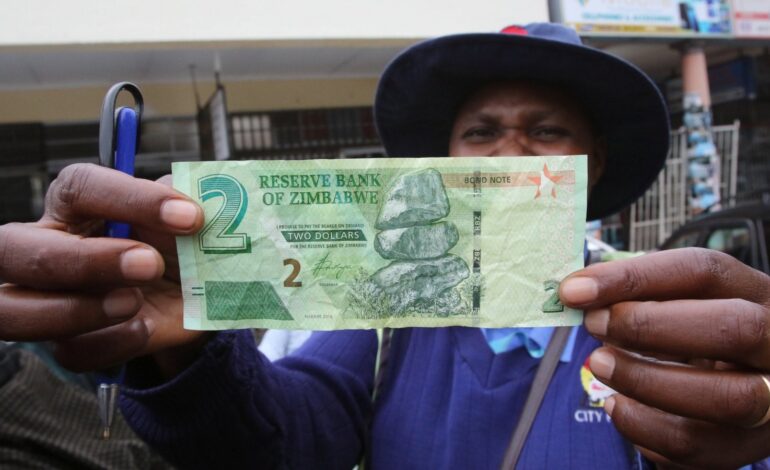
Oliver Meth
Zimbabwe will soon introduce a new 100 dollar bank note, its highest paper money denomination, according to a government notice – but the bank note is just enough to buy a half a loaf of bread.
There has been little cheer to the announcement of Zimbabwe’s new ZWL100 bill, amid fears that the country is spinning back into hyper-inflation. The new note will be worth $0.68 in US currency.
The introduction of the new note comes as inflation is starting to tick upward at 72.7 percent in March, up from 66.1 percent in February.
It has revived memories of hyperinflation seen more than a decade ago when prices spiralled out of control, that the central bank in 2008 issued a 100-trillion dollar note, which has become a collectors item.
The powersharing government that came into office the following year, ditched the local currency and adopted the greenback and South African rand as legal tender. But in 2019, the government reintroduced the Zimbabwean dollar, saying it was equivalent to $1.
Finance Minister Mthuli Ncube on Wednesday gazetted Statutory Instrument 68A of 2022 which stipulated introduction of the new Zimbabwean note.
“This notice may be cited as the Reserve Bank of Zimbabwe [issue of 100-dollar banknote] notice of 2022. There shall be issued, in terms of the Act, a 100-dollar banknote,” reads a part of the statutory instrument.
President Emerson Mnangagwa’s administration insists that the economy will not fully dollarise while the IMF is urging for exchange rate liberalisation.
“Concerted efforts are needed toward greater exchange rate flexibility by allowing a more transparent and market-driven price process.”
“Directors called on the authorities to phase out exchange restrictions and multiple currency practices as soon as conditions permit,” the IMF said in a recent country note on Zimbabwe.
But with inflation remaining elevated at 72% for March, prices have been rising, with supermarkets – including Pick n Pay and OK Zimbabwe – forced to frequently adjust their pricing. Lower denominated notes have also started to occasion transacting challenges.
The central bank has just allowed individual and corporate holders of free funds (foreign currency) to trade their hard currency on a willing-seller-willing-buyer basis with banks.
It has also hiked bank policy rates and further tightened reserve money targeted in measures seen as protectionist for the struggling local unit.




